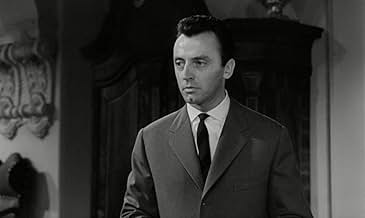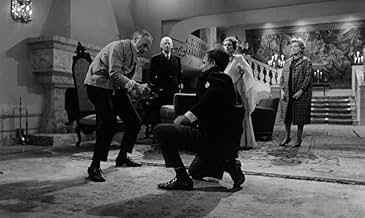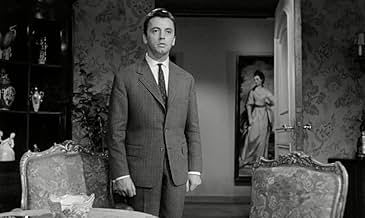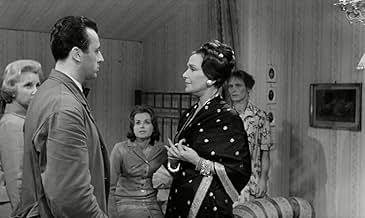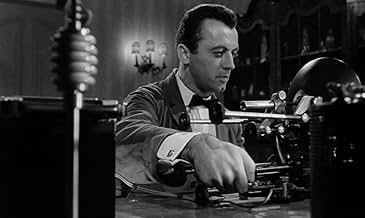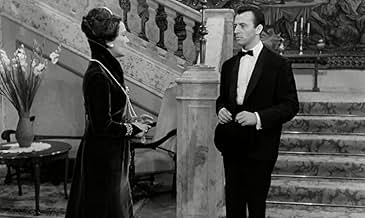Eddi Arent(1925-2013)
- Actor
- Writer
Eccentric, self-deprecating comedian Eddi Arent first attracted
attention in a series of quirky
Edgar Wallace adaptations in the 1960's.
For several years, he was Germany's idea of stereotypically blithering
English lords
(The Strange Countess (1961),
as the aptly named Lord Selwyn Moron), laconic butlers
(Secret of the Red Orchid (1962))
or obtuse, clumsy second-string Scotland Yard photographers
(Dead Eyes of London (1961),
The Door with Seven Locks (1962).
Otherwise, Arent was patently reliable as droll, vaguely effete
sidekicks and comic relief in westerns and adventure films based on the
ever-popular writings of Karl May. He is fondly
remembered as the mild-mannered, bumbling butterfly collector
Castlepool in the 'Winnetou' trilogy, beginning with
The Treasure of the Silver Lake (1962).
To confound those who had him perpetually typecast, Arent also donned
the black garb of villainy as a murderous monk for one of his last
Edgar Wallace potboilers,
The Sinister Monk (1965).
He must have enjoyed this change of character, since he repeated the
exercise: first (not too convincingly), playing a human trafficker
masquerading as a priest in
Der Bucklige von Soho (1966);
then, as a knife-throwing killer in the English-German co-production
Psycho-Circus (1966), which had
the great Christopher Lee (for
once) relegated to the role of the 'red herring'.
Unlike most of his peers, Arent had little formal theatrical training. Instead, he began in cabaret, where he developed the character sketches and personae which would later make his name. Nor did he have any interest in forging a career on the legitimate stage. Films first saw him as a dramatic actor in minor supporting roles, his natural talent as a comedian not recognised until the end of the 1950's. After his hey-day in the 60's, his subsequent output was fairly unremarkable. For the most part, he fluttered around on the margins of youth-oriented low-brow pop-films. Some of his other pictures may have appealed to devotees of 'Heimatfilm' schmaltz. However, in the 80's, Arent acquired a new following with the television sketch show Harald und Eddi (1987). In conjunction with perennial audience favorite Harald Juhnke, he delighted audiences with his comedic versatility. Leaving the limelight in the 1990's, Arent then endured a series of financial and personal setbacks. Suffering from depression and increasingly afflicted by dementia, he died in May 2013 at the age of 88.
Unlike most of his peers, Arent had little formal theatrical training. Instead, he began in cabaret, where he developed the character sketches and personae which would later make his name. Nor did he have any interest in forging a career on the legitimate stage. Films first saw him as a dramatic actor in minor supporting roles, his natural talent as a comedian not recognised until the end of the 1950's. After his hey-day in the 60's, his subsequent output was fairly unremarkable. For the most part, he fluttered around on the margins of youth-oriented low-brow pop-films. Some of his other pictures may have appealed to devotees of 'Heimatfilm' schmaltz. However, in the 80's, Arent acquired a new following with the television sketch show Harald und Eddi (1987). In conjunction with perennial audience favorite Harald Juhnke, he delighted audiences with his comedic versatility. Leaving the limelight in the 1990's, Arent then endured a series of financial and personal setbacks. Suffering from depression and increasingly afflicted by dementia, he died in May 2013 at the age of 88.

